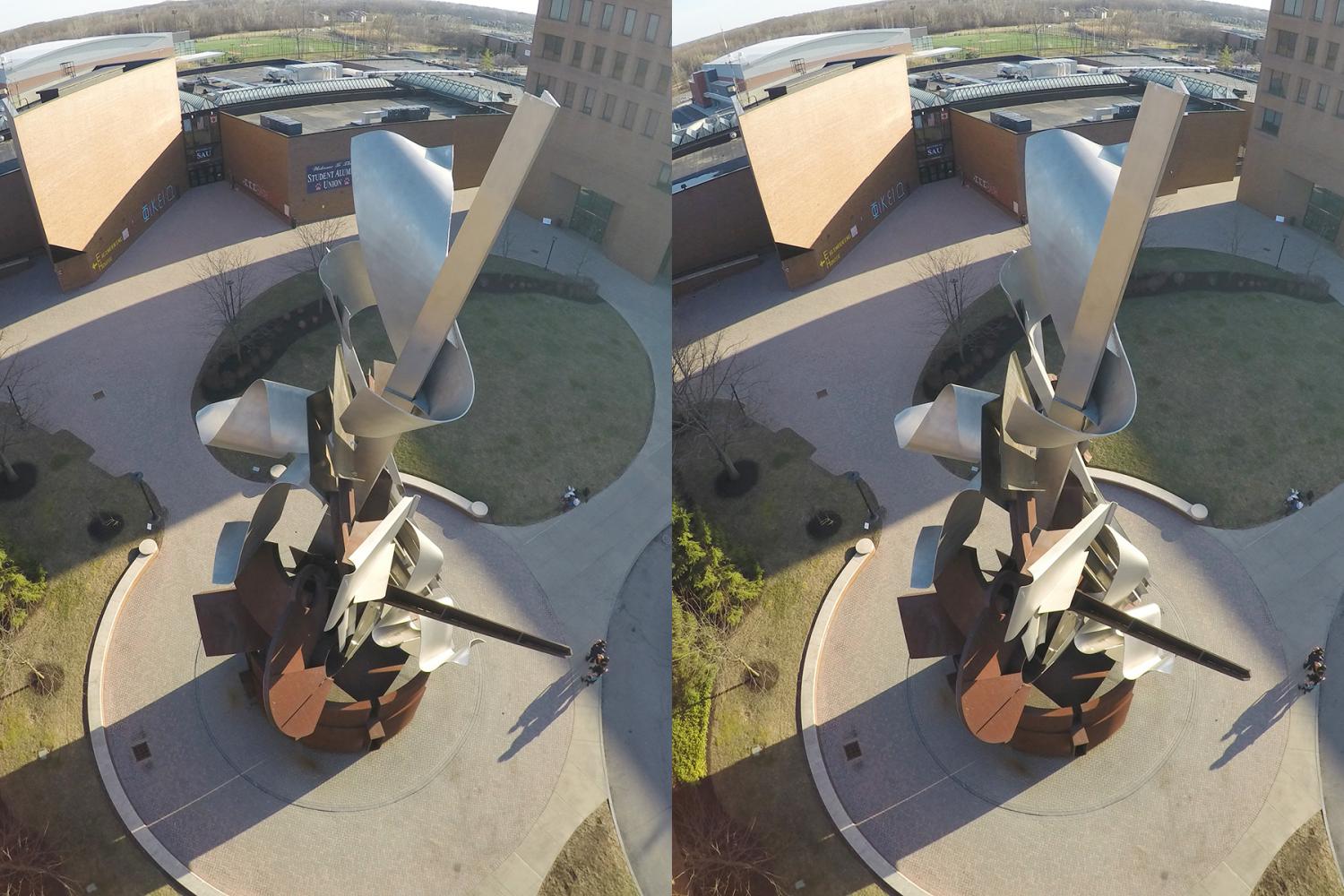Last year the Federal Aviation Administration, or FAA, visited RIT to assess the university’s proximity to the Rochester International Airport.
“[The FAA] wanted to enforce a strict ban on flying anything over campus,” said RIT professor and program chair for the school of Photographic Arts & Sciences Frank Cost.
As a result of RIT being located about four miles away from the airport, concerns of drones hitting or interrupting commercial plane flights arose and were ultimately the reason for the decision. Even though the decision was made last year, however, students and staff were not made aware until the ban on drone usage was made explicit, resulting in a new Aerial Photography and Videography class led by Cost to be disallowed from using drones halfway through the semester last spring and to ultimately be canceled.
This action could hurt students by removing core classes they need. Aerial Photography and Videography, an elective class offered to juniors and seniors, is effectively canceled and not available to take at this time. The class covered the history and tradition of aerial photography as well as actually using drones for such photography.
"I thought it would be fun to teach a new course in aerial photography because it's becoming a very important thing," Cost said.
The FAA ban specifies that no commercial activity involving drones is to be enacted on RIT’s campus. Commercial activity includes any and all teacher-student activity and therefore disallows the usage of drones in classes on any level. The ban of certain courses also prevents students from flying drones recreationally and with clubs, however they can fly them off campus, whereas teachers (with their students) cannot in any academic manner as it would be considered a “commercial activity."
“It’s unfortunate, but we’re complying with the federal authorities. Eventually I think we’ll be able to teach aerial photography away from campus,” Cost added. Cost is going to be speaking at a conference in a couple of weeks in Rochester and is going to attempt to request a waiver for RIT in order to let professors fly drones with students off of campus and teach classes related to drones.
While decreases on restrictions may be possible in the future, there are still options for students looking pursue drones and other small aircraft as a personal interest. There is a model aeronautics club on campus, Aero Design, that designs and builds RC-model airplanes from scratch. There are also multiple fields in the Rochester area where small aircraft can be flown legally, so long as those aircraft stay under an altitude of 400 feet. Such fields are located in Mendon Ponds and Black Creek Park, as well as other local areas. Students are also welcome to try new and innovative ways to use drones in other ways as well, such as a student of Cost’s who is actually working on an underwater photography drone.
As for now the options are limited for student aircraft exploration but they still exist. Hopefully, we will see that change in the near future with the possibility of exemption from the ban for academic purposes, at least at off-campus locations. Cost will be speaking at the New York State Airport Management Association sponsored conference in a few weeks which will serve as the next step in possibly bringing drones and small aircraft back to classes at RIT.








